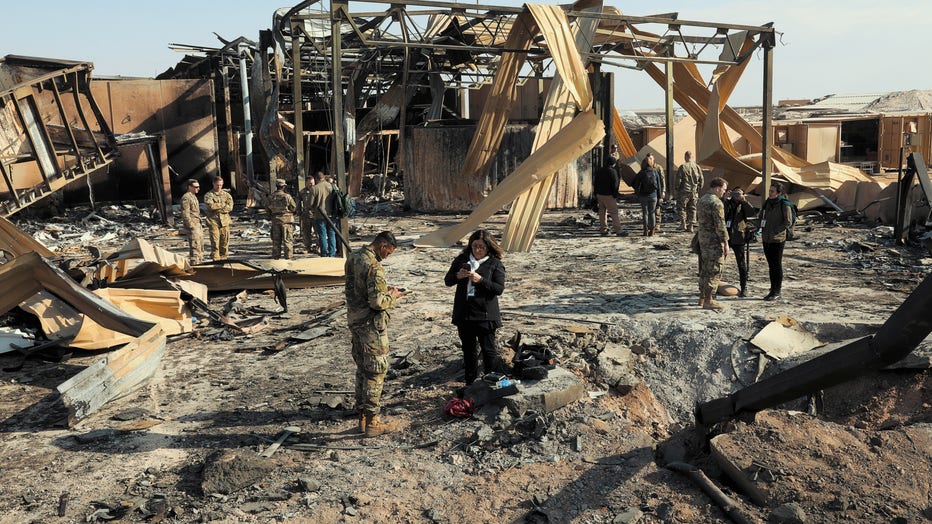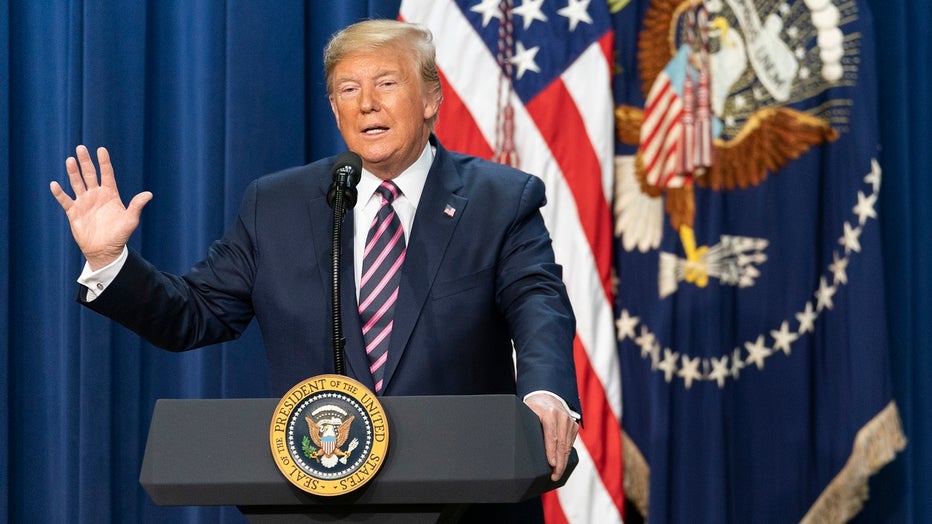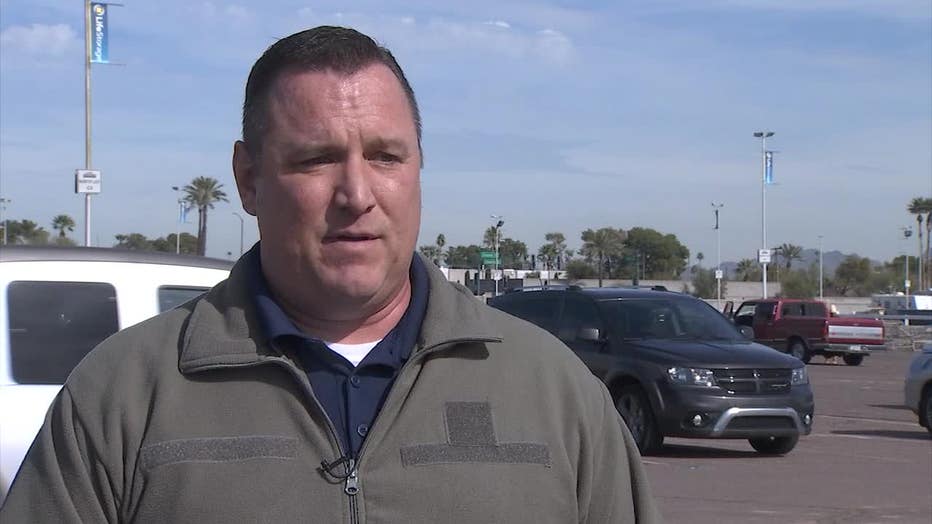Phoenix veteran with brain injury reacts to President Trump's 'headache' remark

Valley vet with brain injury reacts to Trump’s ‘headache’ remark
New information released Friday about the missile attack earlier January on a U.S. naval base in Iraq shows it had a physically traumatic effect on our troops, and comments from President Trump several days ago touched a nerve with an Arizona veteran. FOX 10's Bailey Miller reports.
PHOENIX - New information released Friday about the missile attack earlier January on a U.S. naval base in Iraq shows it had a physically traumatic effect on our troops.
The Pentagon says 34 American troops suffered traumatic brain injuries in that attack, and 8 of those soldiers returned to the U.S. for treatment.

Media outlets visit one of the many impact sites created by the missile attacks at Al Asad Air Base, Iraq. (U.S. Army photo by Spc. Derek Mustard)
Comments from President Donald Trump several days ago touched a nerve with an Arizona veteran when a reporter asked the president about reports of soldiers having potential traumatic brain injuries.
"I heard that they had headaches and a couple of other things, and I can say and report it is not very serious," said President Trump. "I have seen injuries much worse."

President Donald Trump (Official White House photo by Tia Dufour)
Patrick Ziegert says the way Trump labeled it as headaches "minimizes" and "diminishes" the trauma active members and veterans experience.
Ziegert is a combat veteran who served in the United States Navy and Army for 15 years, he suffered a head injury while serving overseas. When President Trump referred to injuries sustained by U.S. troops as "headaches," he says he couldn't believe it.
Ziegert says he knows all too well these injuries are much more than headaches.
While serving in Iraq, he watched his three friends die from a bomb explosion. Ziegert was the lone survivor of the attack, and sustained a mild traumatic brain injury.

Patrick Ziegert
The Brain Injury Alliance of Arizona is dedicated to improving the lives of individuals with brain injuries. They help thousands of veterans with this same issue and think the president's comments can be used as a way to start a conversation to educate people about these kinds of injuries.
"Brain injury is extremely common. Every 23 seconds someone sustains a dramatic brain injury. We work with both military families and veterans. Sometimes the military member does not want treatment or is not in a place where they can seek treatment, so we are happy to work with the families to create a great environment for the veteran to allow them to heal," says Carrie Collins, executive director of the organization.
Brain Injury Alliance of Arizona

